
Tena: Gateway to Ecuador's Amazon Rainforest
Nestled in the heart of Ecuador's Amazon Basin, Tena is a vibrant city known for its lush landscapes, diverse wildlife, and rich cultural heritage. As the capital of the Napo Province, Tena serves as an ideal starting point for adventurers looking to explore the Amazon rainforest. The city is surrounded by dense jungles, pristine rivers, and a plethora of natural wonders that offer endless opportunities for eco-tourism and outdoor activities. The city's charm is in its unique blend of natural beauty and cultural richness. Tena boasts a variety of attractions, from the stunning waterfalls of the Llanganates National Park to the serene beauty of the Misahuallí River. Visitors can engage in exciting activities such as white-water rafting, kayaking, and jungle trekking. For those interested in the local culture, Tena offers a chance to interact with indigenous communities, learn about traditional practices, and experience the vibrant local markets. Tena's climate is warm and humid, making it a perfect destination for those who love tropical weather. The city is also known for its commitment to sustainability and conservation, ensuring that its natural beauty remains intact for future generations. With its welcoming atmosphere, diverse attractions, and commitment to preserving its natural environment, Tena promises an unforgettable experience for every traveler.
Local tips in Tena
- Bring insect repellent and lightweight clothing to stay comfortable in the humid climate.
- Hire a local guide for jungle treks to enhance your experience and ensure safety.
- Visit the indigenous communities to learn about their culture and traditions.
- Try local delicacies at the markets, such as fresh Amazonian fish and exotic fruits.
- Don't miss out on white-water rafting in the Jatunyacu River, known for its thrilling rapids.
- Plan your visit during the dry season (June to October) for more comfortable trekking conditions.
Tena: Gateway to Ecuador's Amazon Rainforest
Nestled in the heart of Ecuador's Amazon Basin, Tena is a vibrant city known for its lush landscapes, diverse wildlife, and rich cultural heritage. As the capital of the Napo Province, Tena serves as an ideal starting point for adventurers looking to explore the Amazon rainforest. The city is surrounded by dense jungles, pristine rivers, and a plethora of natural wonders that offer endless opportunities for eco-tourism and outdoor activities. The city's charm is in its unique blend of natural beauty and cultural richness. Tena boasts a variety of attractions, from the stunning waterfalls of the Llanganates National Park to the serene beauty of the Misahuallí River. Visitors can engage in exciting activities such as white-water rafting, kayaking, and jungle trekking. For those interested in the local culture, Tena offers a chance to interact with indigenous communities, learn about traditional practices, and experience the vibrant local markets. Tena's climate is warm and humid, making it a perfect destination for those who love tropical weather. The city is also known for its commitment to sustainability and conservation, ensuring that its natural beauty remains intact for future generations. With its welcoming atmosphere, diverse attractions, and commitment to preserving its natural environment, Tena promises an unforgettable experience for every traveler.
When is the best time to go to Tena?
Iconic landmarks you can’t miss
Malecón Escénico de Tena
Experience the beauty of Tena at the Malecón Escénico: a vibrant riverside park where nature, culture, and adventure converge.
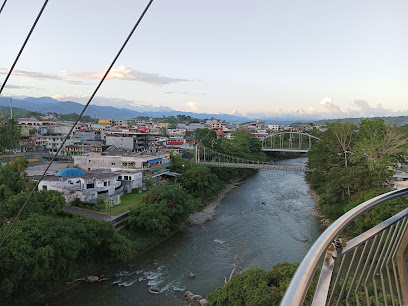
Redondel Jumandy
Discover the natural beauty and cultural richness of the Amazon rainforest at Tena's iconic Redondel Jumandy.
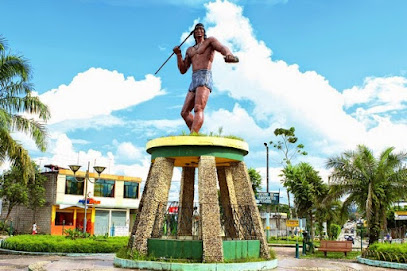
Parque Amazónico La Isla
Discover the natural beauty and diverse wildlife of Parque Amazónico La Isla in Tena, Ecuador, a must-visit park for nature lovers and adventurers.
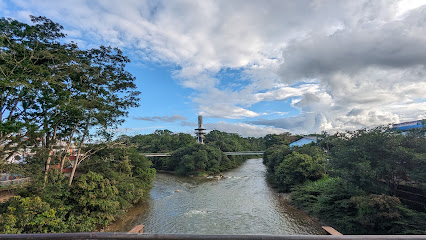
TENA NAPO ECUADOR
Experience nature and adventure at Tena Napo, a city park offering access to Ecuador's Amazon rainforest and thrilling outdoor activities.
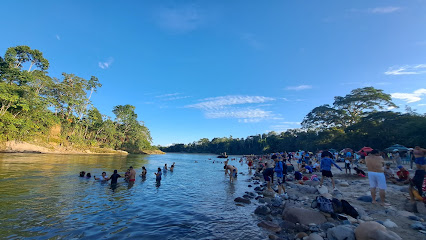
amaZOOnico
Discover Amazonian wildlife at this rehabilitation center near Tena, Ecuador, dedicated to rescuing and protecting trafficked animals.
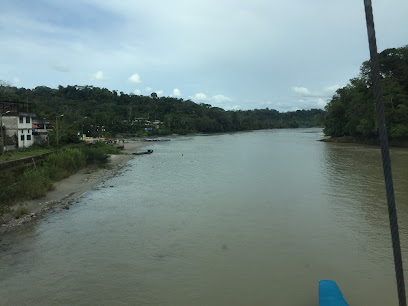
Laguna Azul (Guaysayacu)
Discover the beauty of Laguna Azul in Tena, Ecuador: natural pools, lush rainforest, and Kichwa community hospitality.

Hostal Tena Ñaui
Experience comfort and adventure at Tena Ñaui, your perfect starting point for exploring the Ecuadorian Amazon rainforest.

Hostal Pakay
Experience comfort and adventure at Hostal Pakay in Tena, your gateway to the Amazon rainforest and local culture.
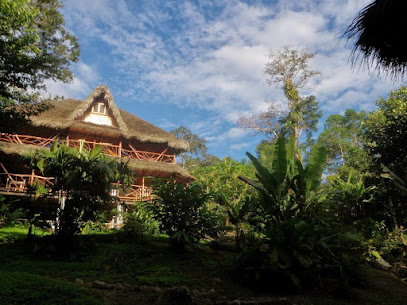
Laguna AZUL Tena
Discover crystal-clear pools and lush jungle scenery at Laguna Azul, a community-managed paradise near Tena, Ecuador.
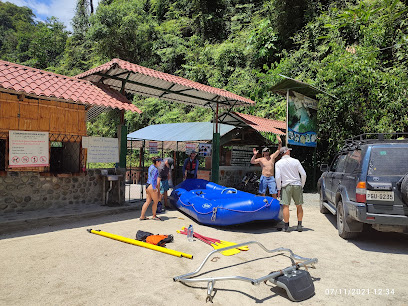
River People Ecuador (Rafting & Kayaking in Tena)
Experience thrilling rafting and kayaking adventures with River People Ecuador in Tena, the gateway to the Amazon rainforest.
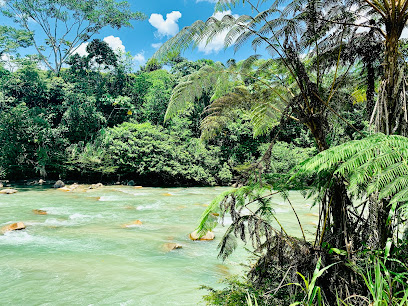
Zona Camping Cascada de Latas
Escape to Zona Camping Cascada de Latas in Puerto Napo, Ecuador, for an immersive Amazon rainforest experience with stunning waterfalls and lush trails.
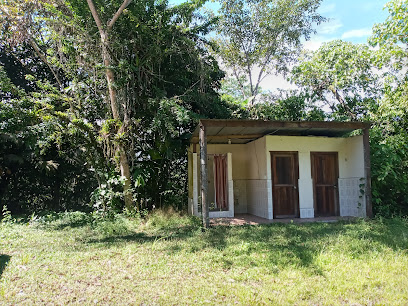
Tuna Bistrot restaurante vegetariano
Discover fresh, innovative vegetarian cuisine in a cozy Amazonian setting at Tena's Tuna Bistrot. A culinary experience you won't want to miss!
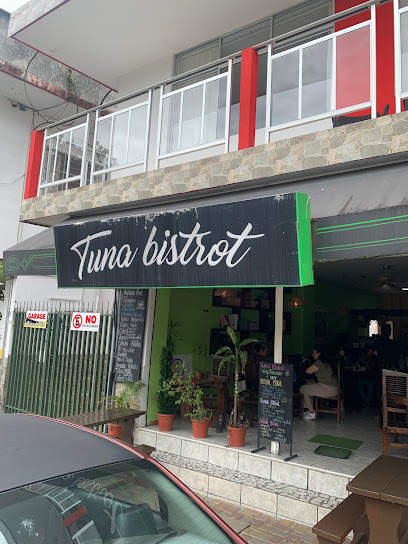
Tamia Yura
Experience the heart of Kichwa culture in Tena: workshops, art, traditions, and community spirit in the Ecuadorian Amazon.
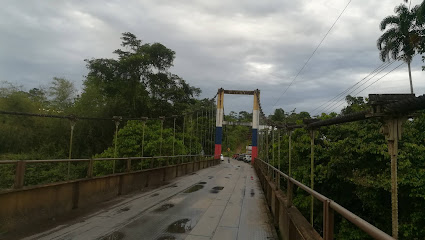
Caveman Adventures
Experience thrilling rafting and kayaking adventures with expert guides in Tena, Ecuador's Amazon rainforest. Unforgettable river trips for all levels!
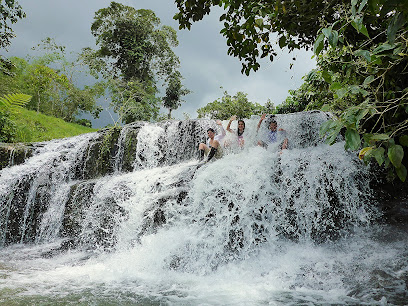
Cavernas del Toglo
Discover the hidden treasures of Ecuador's Amazon rainforest at Cavernas del Toglo, an unforgettable subterranean adventure near Tena.
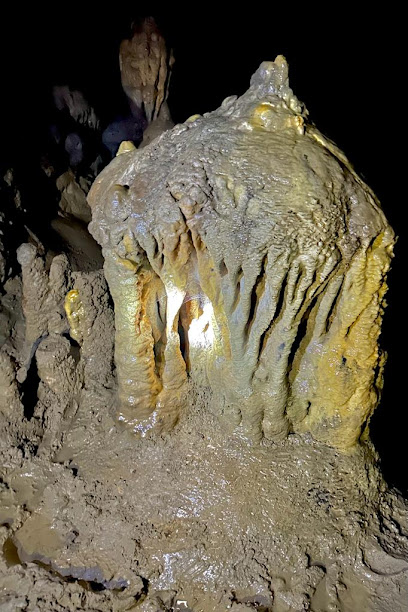
Unmissable attractions to see
Malecón Escénico de Tena
Experience the breathtaking beauty and vibrant culture of Tena at the Malecón Escénico, your gateway to the Amazon.
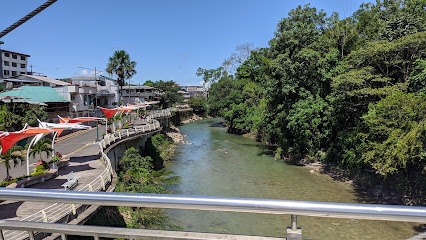
Parque Amazónico La Isla
Explore the breathtaking beauty of Parque Amazónico La Isla, a vibrant Amazon park filled with rich biodiversity and cultural experiences.
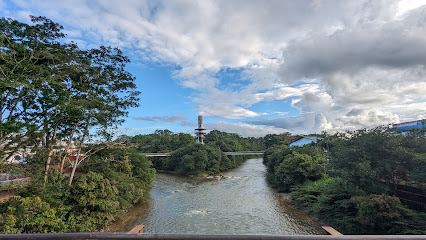
Jumandy Caves
Discover the mystical Jumandy Caves in Archidona, Ecuador, where natural beauty and ancient history intertwine for an unforgettable experience.
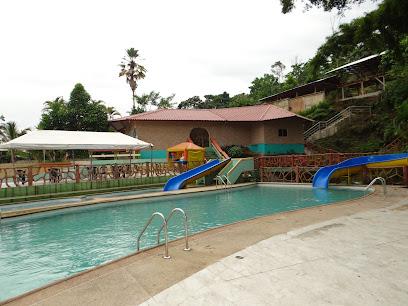
Tena Central Park
Explore Tena Central Park, a tranquil oasis filled with lush greenery and vibrant community life in the heart of Tena, Ecuador.
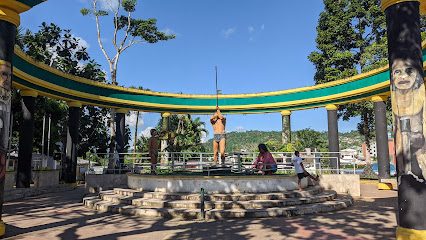
amaZOOnico
Discover amaZOOnico, a premier wildlife refuge in Tena, Ecuador, dedicated to the rescue and rehabilitation of exotic animals.
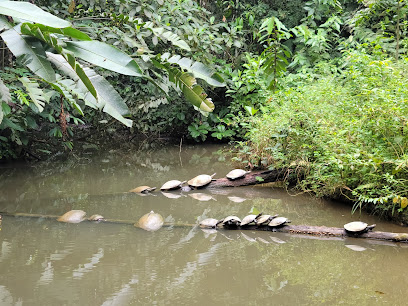
El Gran Cañón
Experience the beauty of El Gran Cañón, a tranquil retreat in Cotundo, Archidona, where nature meets comfort and adventure awaits.
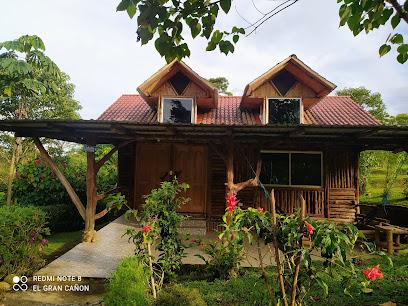
Treehouse
Explore Treehouse in Shell, Ecuador: a mesmerizing blend of art and nature in the heart of the Amazon rainforest.
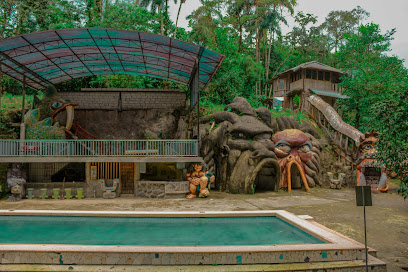
Cavernas Templo de Ceremonia
Discover the enchanting Cavernas Templo de Ceremonia in Cotundo, where nature and culture intertwine amidst stunning rock formations.
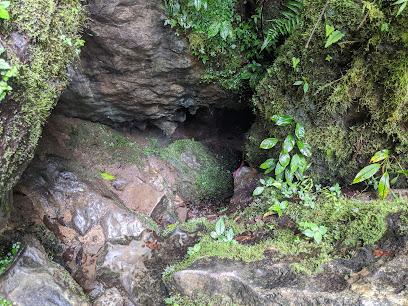
Laguna AZUL Tena
Explore the natural beauty and adventure at Laguna AZUL Tena, a premier campground in Ecuador's Amazon rainforest, perfect for outdoor enthusiasts.

Cascada pimpillitu
Explore the stunning Cascada Pimpillitu in Tena, Ecuador, a natural paradise ideal for adventure, tranquility, and breathtaking views.
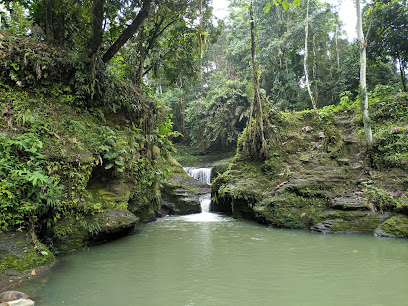
Laguna Paikawe Reserva
Explore the breathtaking beauty and rich biodiversity of Laguna Paikawe Reserva, a stunning Amazonian paradise near Puerto Misahuallí, Ecuador.
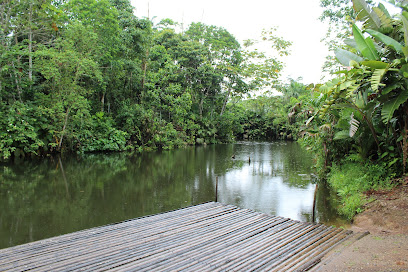
Cascadas Yanayaku
Explore the stunning beauty of Cascadas Yanayaku, a breathtaking waterfall in Archidona, Ecuador, surrounded by lush rainforest and rich biodiversity.
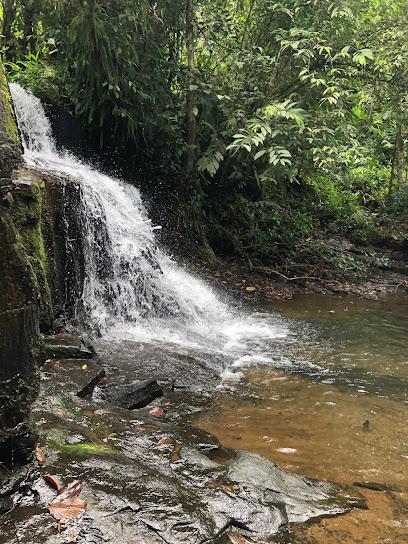
Caveman Adventures
Experience thrilling canoeing and rafting adventures in Tena, Ecuador's breathtaking Amazon rainforest.
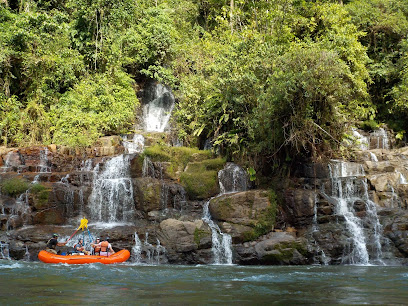
Cascadas de Pimpilala
Discover the breathtaking beauty of Cascadas de Pimpilala, a hidden waterfall paradise in Pano, Ecuador, perfect for nature lovers and adventurers.
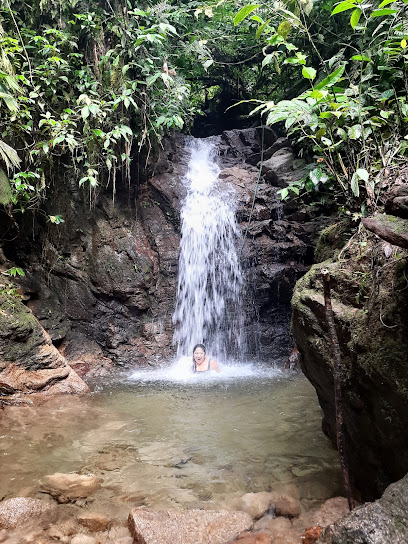
Cavernas del Toglo
Explore the breathtaking Cavernas del Toglo, a stunning network of caves nestled in the lush Amazon rainforest of Ecuador, perfect for adventure seekers and nature lovers.
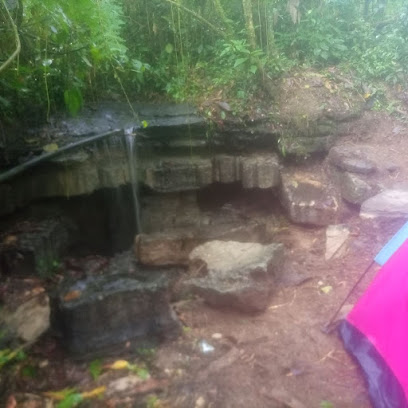
Essential places to dine
Restaurant La Fogata
Experience authentic Ecuadorian flavors at Restaurant La Fogata in Tena – where culinary excellence meets warm hospitality.
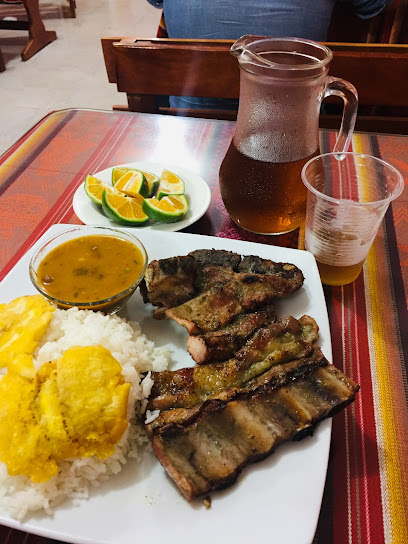
El Balcón De Las Orquídeas
Experience exquisite Ecuadorian cuisine with breathtaking views at El Balcón De Las Orquídeas in Tena.
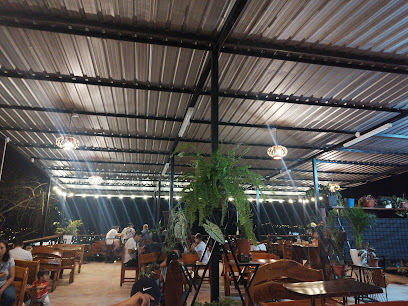
La Chakra Restaurante - Cafeteria
Experience authentic Ecuadorian cuisine at La Chakra Restaurante - Cafeteria in Tena, where every dish tells a story and every meal is memorable.
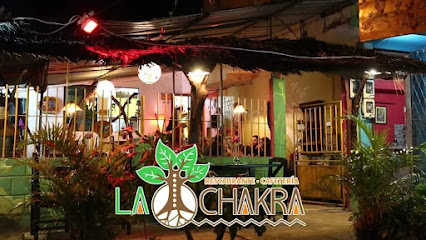
Vilino Albero - Pasta, pizza & Grill
Experience authentic Italian cuisine at Vilino Albero in Tena—where pasta, pizza, and grill specialties come alive in a charming setting.
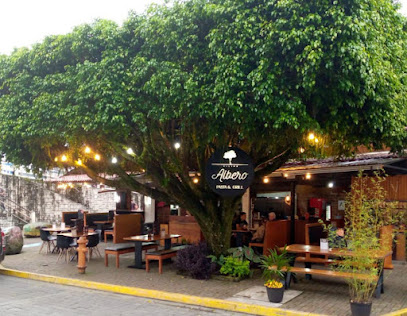
The Marquis
Experience delightful Ecuadorian cuisine at The Marquis in Tena - where local flavors meet exceptional dining.
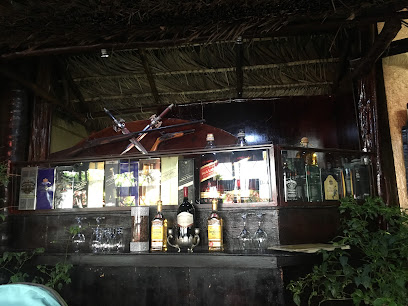
BOLIBAR PUB RESTAURANTE
Discover family-friendly dining at Bolibar Pub Restaurante in Tena - enjoy local flavors and a warm atmosphere perfect for all ages.
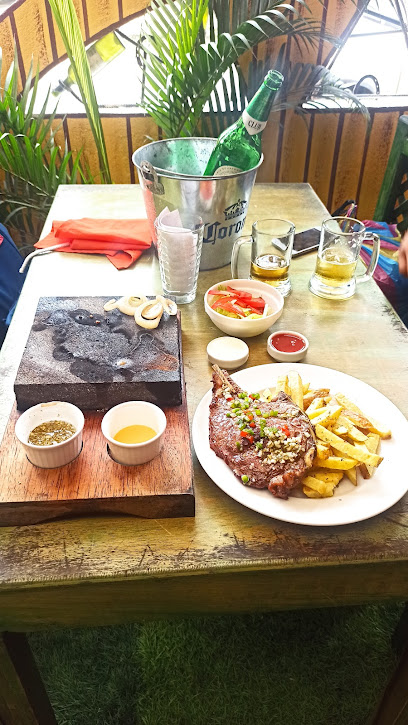
La Vieja Hacienda
Experience authentic Ecuadorian flavors at La Vieja Hacienda in Tena – where tradition meets taste in a charming setting.
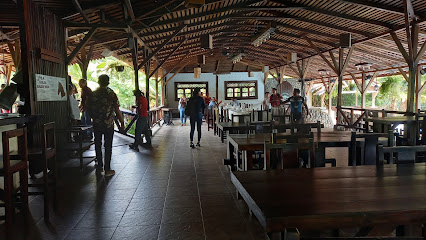
Restaurant Safari
Experience authentic Ecuadorian cuisine in Tena at Restaurant Safari - where delicious flavors meet warm hospitality.
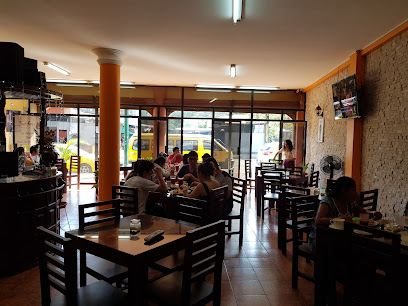
Tuna Bistrot restaurante vegetariano
Discover delicious vegetarian cuisine at Tuna Bistrot in Tena - where fresh ingredients meet innovative culinary artistry.
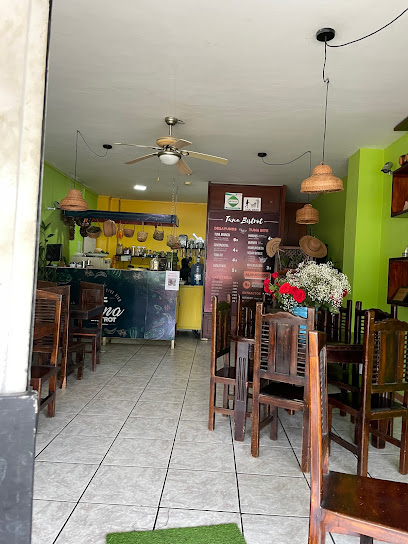
Emanuel Restaurante
Discover authentic Ecuadorian cuisine at Emanuel Restaurante in Tena - where fresh ingredients meet rich flavors.
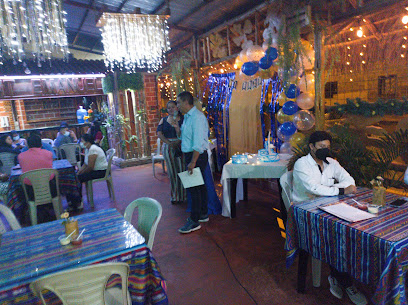
La Casa del Encocado
Discover La Casa del Encocado in Tena - where fresh seafood meets Ecuadorian culinary traditions for an unforgettable dining experience.
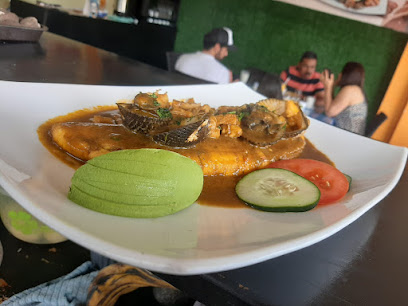
Restaurant Don Diego
Discover authentic Ecuadorian cuisine at Restaurant Don Diego in Tena—where every dish tells a story and every bite is a celebration.
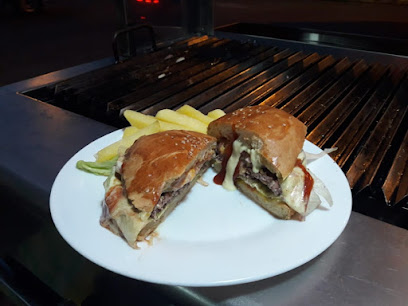
Restaurante Sabor de Casa
Discover the heart of Ecuadorian flavors at Restaurante Sabor de Casa in Tena – where every dish tells a story.
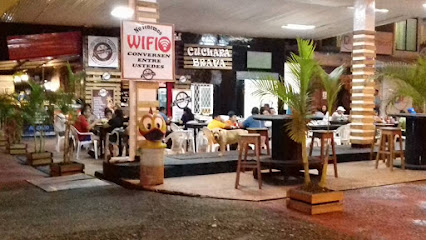
El Sapito Restaurante
Experience authentic Ecuadorian flavors at El Sapito Restaurante in Tena - where every meal tells a story.
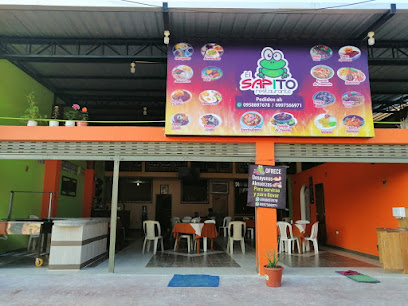
Smoky Beer
Experience authentic Ecuadorian cuisine with local craft beers at Smoky Beer in Tena - a hidden gem for food lovers!
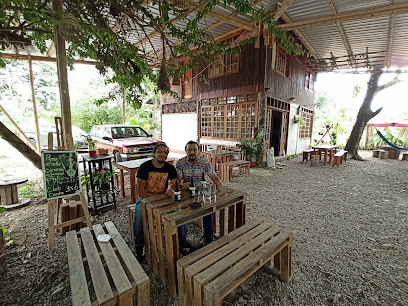
Markets, malls and hidden boutiques
Tía Tena
Explore Tía Tena, a vibrant supermarket in Tena, Ecuador, offering fresh produce, quality meats, and local delicacies for an authentic culinary experience.
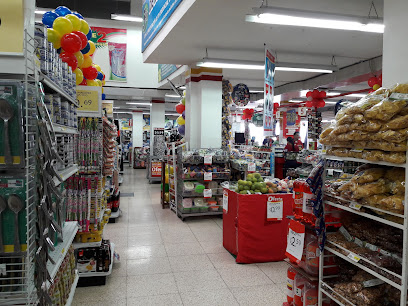
Hostal Pakay
Discover the beauty of Tena at Hostal Pakay, your eco-friendly base for Amazon adventures and unforgettable experiences.
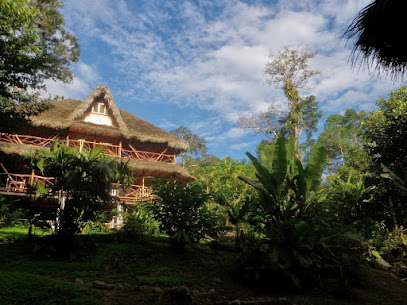
Supermercado La Feria
Experience local culture and flavors at Supermercado La Feria, Tena's vibrant marketplace for fresh produce and unique Ecuadorian goods.
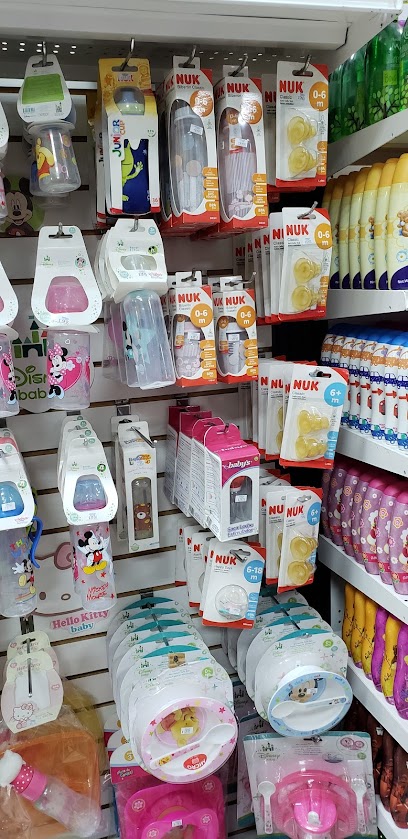
Sweet Rolls
Discover the joy of unique ice cream flavors at Sweet Rolls in Tena, Ecuador, a delightful stop for tourists and locals alike.
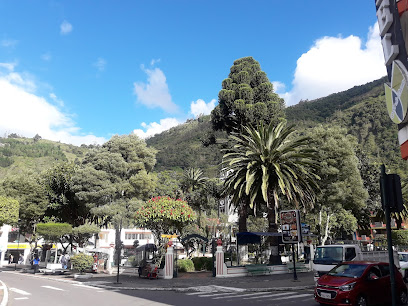
Comercial La Feria
Explore the vibrant atmosphere of Comercial La Feria, Tena's discount supermarket, where local culture meets affordable shopping.
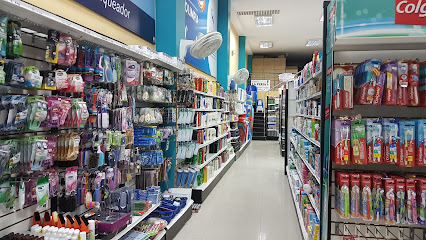
Zona Gamer Technology
Discover the ultimate tech haven at Zona Gamer Technology in Tena, Ecuador, where gaming dreams come to life with top-notch gear and expert advice.
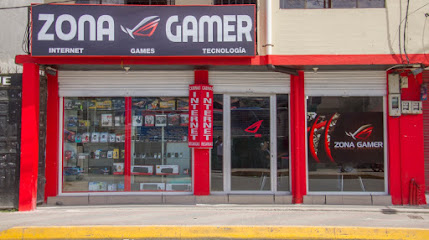
Munani
Explore Munani, Tena's charming gift shop offering unique local crafts and beautiful flower arrangements for every occasion.
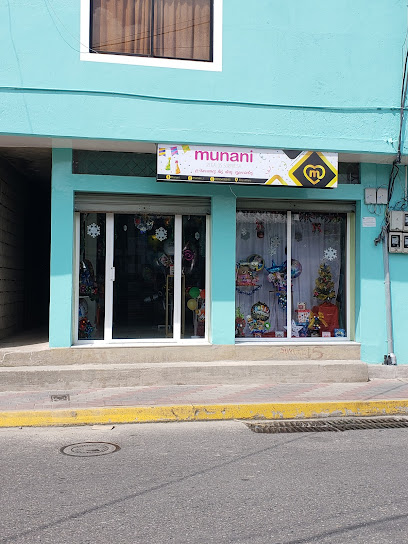
Janna Regalos
Discover Janna Regalos in Tena for unique gifts and souvenirs that showcase the rich culture and creativity of Ecuador.
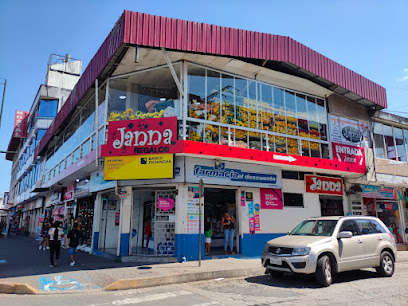
Amazonia Arte Galería
Discover authentic Ecuadorian craftsmanship at Amazonia Arte Galería in Tena, featuring handcrafted clothing and unique local artisan goods.
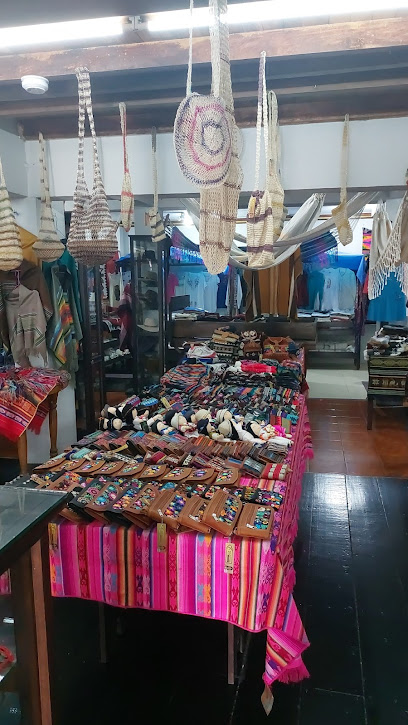
La Clinica Del Celular
Discover the best mobile repair services at La Clinica Del Celular in Tena, where quality meets convenience for all your device needs.
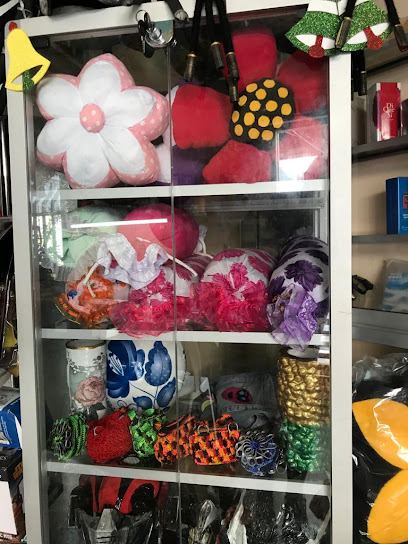
TITI CLOSET
Explore Titi Closet in Tena, Ecuador - a clothing store blending local culture with modern fashion for unforgettable souvenirs.
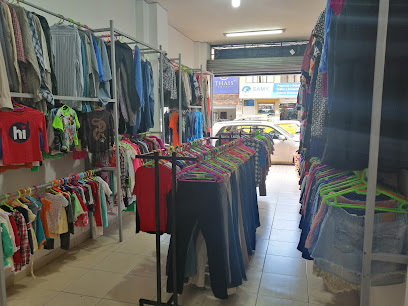
CM ChocoFruits
Discover the exquisite chocolate-covered fruits of CM ChocoFruits, a delightful gift shop in Tena, Ecuador, perfect for sweet treats and unique souvenirs.

inLOVE
Explore inLOVE in Tena, Ecuador – your one-stop destination for unique gifts, floral arrangements, and expert event planning services.

Boutique fashion love Tena
Explore unique styles and local craftsmanship at Boutique Fashion Love Tena, the premier fashion destination for tourists in Tena.
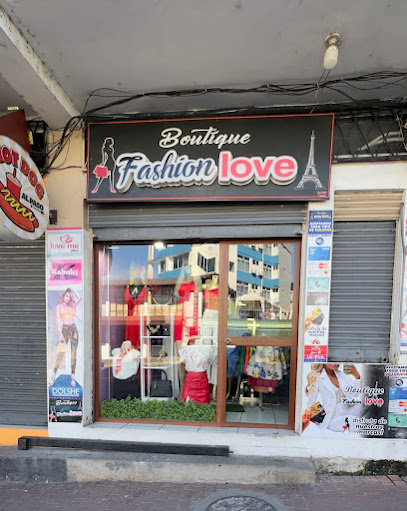
PAN ARTESANAL
Experience the authentic taste of Ecuador at PAN ARTESANAL, Tena's charming bakery known for its delectable pastries and warm ambiance.
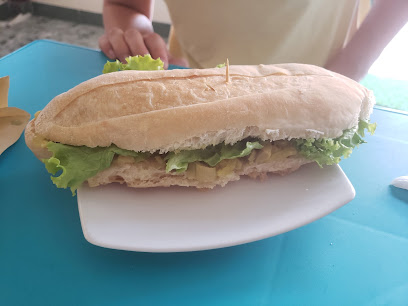
Essential bars & hidden hideouts
Karaoke concierto Disco
Discover the vibrant nightlife of Tena at Karaoke Concierto Disco, where karaoke dreams come true and fun never stops.
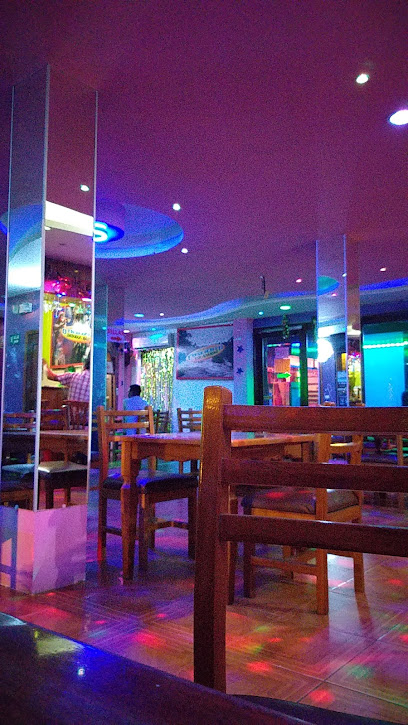
El Callejón bar
Discover El Callejón Bar in Tena, Ecuador: a vibrant hotspot for craft cocktails, live music, and an unforgettable Amazonian nightlife experience.
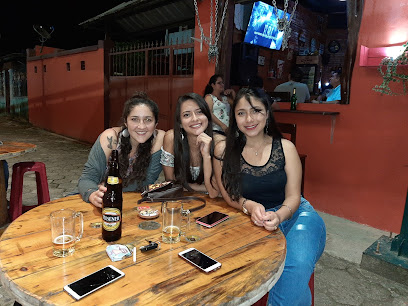
Bolibar
Discover Bolibar, a lively bar in Tena, Ecuador, where vibrant nightlife and local culture come together for an unforgettable experience.
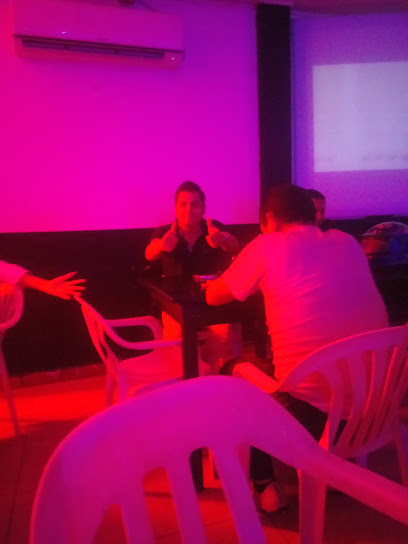
LA TABERNA RESTOBAR CAFETERÍA
Discover the heart of Tena at La Taberna Restobar Cafetería, where local flavors meet a cozy ambiance for an unforgettable dining experience.
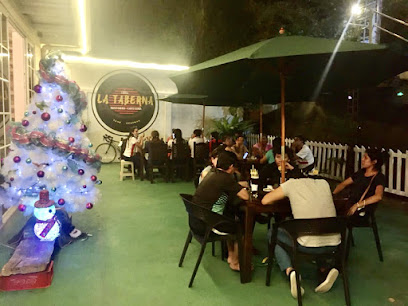
Araña de Don Viche Bar Coctelería
Experience the lively atmosphere and unique cocktails at Araña de Don Viche Bar Coctelería in Tena, Ecuador - a hidden gem for nightlife enthusiasts.
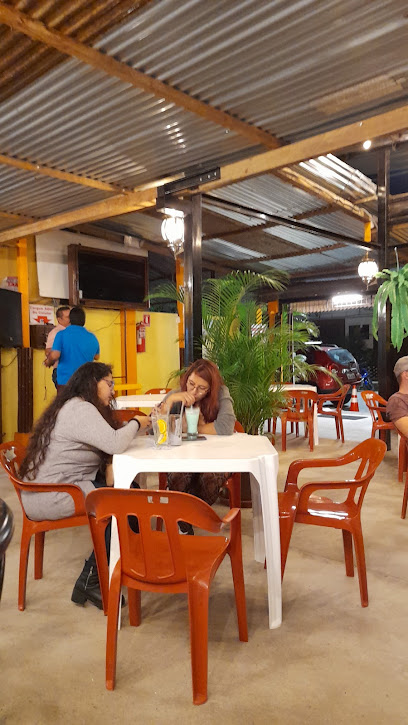
Bar Los Troncos
Experience the vibrant nightlife of Tena at Bar Los Troncos, your go-to spot for cocktails and local flavors in the heart of the Amazon.
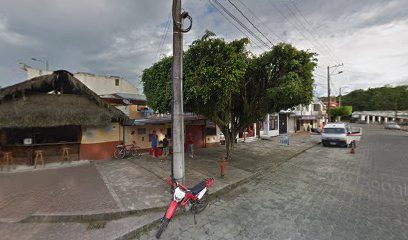
BAR JUNGLE PARADISE
Experience the heart of Tena's nightlife at Bar Jungle Paradise, a vibrant bar offering a diverse drink selection and a lively atmosphere.
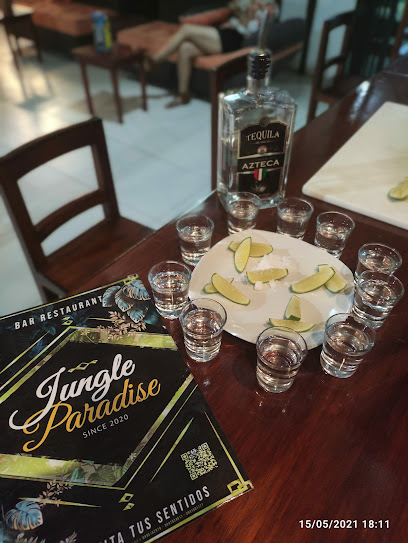
Dogman Tena
Experience the vibrant nightlife at Dogman Tena, where exceptional cocktails and a lively atmosphere await you in the heart of Ecuador's Amazon.
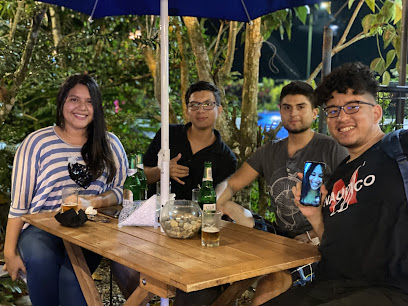
Andy's Bodega
Discover the lively essence of Tena at Andy's Bodega, where local flavors and vibrant culture come together for an unforgettable experience.
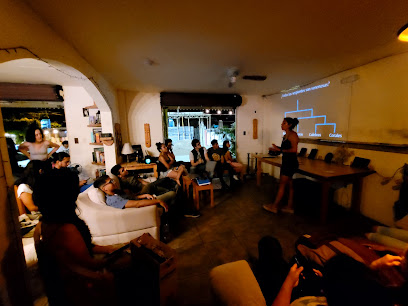
Chuquitos Bar
Experience Tena's vibrant nightlife at Chuquitos Bar, where local flavors and lively entertainment await every visitor.
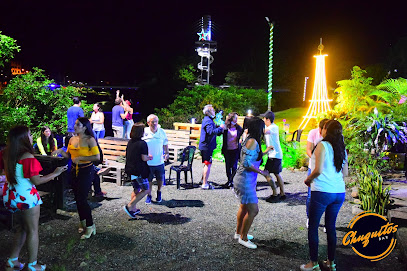
Ayahuasca Lounge
Discover Ayahuasca Lounge in Tena, Ecuador - where local culture meets vibrant nightlife in a captivating setting.
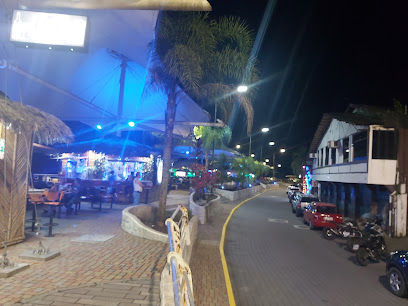
La Selva Restobar
Discover the lively La Selva Restobar in Tena, Ecuador - a cultural gem offering delicious drinks and a vibrant atmosphere.
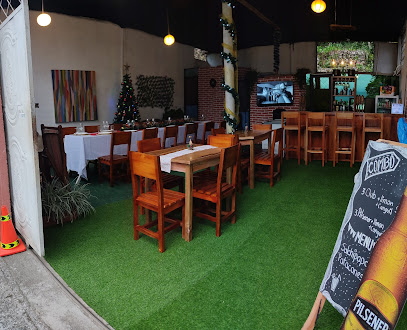
NOMADA RESTO-BAR
Discover the lively spirit of Tena at NOMADA RESTO-BAR, where local flavors and refreshing drinks await you.
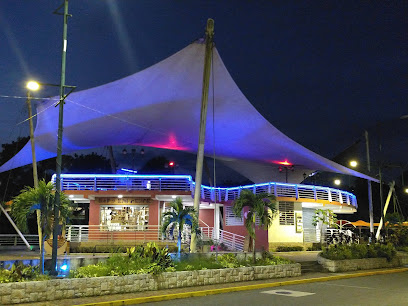
D' Francos Bar
Experience the vibrant atmosphere and local charm of D' Francos Bar in Tena, where great drinks and friendly faces await you.
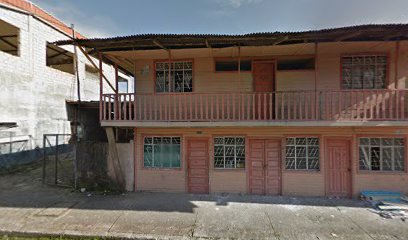
Local Phrases
-
- Hello¡Hola!
[oh-lah] - Goodbye¡Adiós!
[ah-dee-ohs] - YesSí
[see] - NoNo
[no] - Please/You're welcomePor favor/De nada
[por fah-vor/de nah-dah] - Thank youGracias
[grah-see-ahs] - Excuse me/SorryDisculpe/Lo siento
[dees-kool-pe/loh see-en-toh] - How are you?¿Cómo estás?
[koh-moh ehs-tahs] - Fine. And you?Bien. ¿Y tú?
[bee-ehn. ee too] - Do you speak English?¿Hablas inglés?
[ah-blahs een-glays] - I don't understandNo entiendo
[noh ehn-tyen-doh]
- Hello¡Hola!
-
- I'd like to see the menu, pleaseMe gustaría ver el menú, por favor
[meh goos-tah-ree-ah behr ehl meh-noo, por fah-vor] - I don't eat meatNo como carne
[noh koh-moh kahr-neh] - Cheers!¡Salud!
[sah-lood] - I would like to pay, pleaseMe gustaría pagar, por favor
[meh goos-tah-ree-ah pah-gahr, por fah-vor]
- I'd like to see the menu, pleaseMe gustaría ver el menú, por favor
-
- Help!¡Ayuda!
[ah-yoo-dah] - Go away!¡Vete!
[veh-teh] - Call the Police!¡Llama a la policía!
[yah-mah ah lah poh-lee-see-ah] - Call a doctor!¡Llama a un médico!
[yah-mah ah oon meh-dee-koh] - I'm lostEstoy perdido
[ehs-toy pehr-dee-doh] - I'm illEstoy enfermo
[ehs-toy ehn-fehr-moh]
- Help!¡Ayuda!
-
- I'd like to buy...Me gustaría comprar...
[meh goos-tah-ree-ah kohm-prahr] - I'm just lookingSolo estoy mirando
[soh-loh ehs-toy mee-rahn-doh] - How much is it?¿Cuánto cuesta?
[kwan-toh kwehs-tah] - That's too expensiveEso es demasiado caro
[eh-soh ehs deh-mah-see-ah-doh kah-roh] - Can you lower the price?¿Puedes bajar el precio?
[pweh-dehs bah-har ehl pree-syoh]
- I'd like to buy...Me gustaría comprar...
-
- What time is it?¿Qué hora es?
[keh oh-rah ehs] - It's one o'clockEs la una
[ehs lah oo-nah] - Half past (10)Las diez y media
[lahs dyehs ee meh-dee-ah] - MorningMañana
[mah-nyah-nah] - AfternoonTarde
[tahr-deh] - EveningNoche
[noh-cheh] - YesterdayAyer
[ah-yehr] - TodayHoy
[oy] - TomorrowMañana
[mah-nyah-nah] - 1Uno
[oo-noh] - 2Dos
[dohs] - 3Tres
[trehs] - 4Cuatro
[kwah-troh] - 5Cinco
[seen-koh] - 6Seis
[says] - 7Siete
[syeh-teh] - 8Ocho
[oh-choh] - 9Nueve
[nweh-veh] - 10Diez
[dyehs]
- What time is it?¿Qué hora es?
-
- Where's a/the...?¿Dónde está...?
[dohn-deh ehs-tah] - What's the address?¿Cuál es la dirección?
[kwal ehs lah dee-rek-syohn] - Can you show me (on the map)?¿Puedes mostrarme (en el mapa)?
[pweh-dehs mohs-trar-meh (ehn ehl mah-pah)] - When's the next (bus)?¿Cuándo es el próximo (autobús)?
[kwan-doh ehs ehl proh-ksee-moh (ow-toh-boos)] - A ticket (to ....)Un boleto (a ....)
[oon boh-leh-toh (ah)]
- Where's a/the...?¿Dónde está...?
History of Tena
-
Before the arrival of the Spanish conquistadors, the region now known as Tena was inhabited by indigenous peoples, particularly the Quijos and the Napo Runa. These communities thrived on the rich natural resources of the Amazon rainforest, practicing agriculture, hunting, and fishing. They also developed complex social structures and spiritual practices deeply connected to the surrounding nature.
-
In the 16th century, Spanish explorers ventured into the Amazon region in search of gold and other riches. The Spanish presence significantly impacted the indigenous populations through conquest, disease, and forced labor. The Quijos Rebellion of 1578 was a notable resistance effort by the indigenous people; however, it was ultimately quelled by the Spanish forces. Despite this, many indigenous cultural practices and traditions have persisted through the centuries.
-
Tena was officially founded on November 15, 1560, by the Spanish explorer Gil Ramírez Dávalos. Initially established as a mission and trading post, the town served as a hub for the Spanish in their efforts to explore and exploit the Amazon Basin. Over time, Tena grew as a center for commerce and administration within the region.
-
The 20th century brought significant development to Tena with the construction of roads and infrastructure that connected the town more effectively with other parts of Ecuador. The discovery of oil in the Amazon region in the 1960s led to an economic boom, although it also brought environmental and social challenges. Tena evolved into a modern town while maintaining its rich cultural heritage.
-
Tena is known for its vibrant cultural heritage, which is celebrated through various festivals and events. One of the most significant is the annual 'Fiestas de Tena,' which includes parades, traditional music, dance performances, and other cultural activities. These events highlight the blend of indigenous and mestizo cultures that characterize the town.
-
In recent decades, Tena has become a focal point for ecotourism, attracting visitors with its lush rainforests, rivers, and rich biodiversity. The town serves as a gateway to the Amazon, offering numerous opportunities for adventure and nature exploration. Efforts in conservation and sustainable tourism have been emphasized to protect the unique ecosystems and the way of life of local communities.
Tena Essentials
-
Tena is located in the Napo Province of Ecuador, nestled in the Amazon rainforest. The nearest international airport is Mariscal Sucre International Airport in Quito, approximately 5 hours away by road. From Quito, you can take a bus from the Quitumbe terminal directly to Tena, with multiple services running daily. Alternatively, private shuttles and taxis are available for a more comfortable journey. If you're already in Ecuador, interprovincial buses connect Tena with other major cities like Baños and Puyo.
-
Tena is a small city, and many of its attractions are within walking distance. For longer trips, local taxis are readily available and reasonably priced. Public buses operate within the city and connect to nearby communities. Renting a car is another option, though less common. For a more authentic experience, consider using the local canoe services to explore the rivers and surrounding jungle areas.
-
The official currency in Ecuador is the US Dollar (USD). Credit and debit cards are accepted in most hotels, restaurants, and larger shops. However, it is advisable to carry cash, especially for smaller establishments and markets. ATMs are available throughout Tena, but it's wise to withdraw sufficient cash before heading into more remote areas where banking services may be limited.
-
Tena is generally a safe destination for tourists. However, like any travel destination, it is advisable to take standard precautions. Avoid walking alone at night in unfamiliar or poorly lit areas and keep an eye on your belongings in crowded places such as markets. While Tena does not have specific high-crime areas targeting tourists, it is always best to stay vigilant and aware of your surroundings. Exercise caution when exploring remote jungle areas and always use a trusted guide.
-
In case of emergency, dial 911 for immediate assistance. Tena has a local police station and medical facilities, including a hospital and several clinics. It is recommended to have travel insurance that covers medical emergencies. For minor health issues, there are pharmacies in the town where you can purchase over-the-counter medications. If you plan to venture into the jungle, ensure you have necessary vaccinations and medications, such as antimalarials.
-
Fashion: Do dress modestly, especially when visiting indigenous communities. Avoid wearing excessively revealing clothing. Religion: Do respect local customs and traditions. Some areas may have specific cultural practices that should be honored. Public Transport: Do be respectful and courteous. Don’t eat or drink on public transport. Greetings: Do greet people with a friendly 'Hola' or 'Buenos días'. A handshake is also appropriate. Eating & Drinking: Do try local delicacies and accept food offerings graciously. Don’t refuse hospitality, as it is considered impolite.
-
To experience Tena like a local, visit the local markets where you can buy fresh produce and traditional Amazonian goods. Engage with locals, as they are often friendly and willing to share stories about their culture and history. Don't miss out on the opportunity to take a guided tour of the Amazon rainforest, where you can learn about the flora and fauna from knowledgeable guides. For a unique experience, try a meal at a local restaurant serving traditional dishes like maito (fish wrapped in leaves) or chontacuro (grilled palm weevil larvae).
Trending Landmark in Tena
-
Malecón Escénico de Tena
-
Redondel Jumandy
-
Parque Amazónico La Isla
-
TENA NAPO ECUADOR
-
amaZOOnico
-
Laguna Azul (Guaysayacu)
-
Hostal Tena Ñaui
-
Hostal Pakay
-
Laguna AZUL Tena
-
River People Ecuador (Rafting & Kayaking in Tena)
-
Zona Camping Cascada de Latas
-
Tuna Bistrot restaurante vegetariano
-
Tamia Yura
-
Caveman Adventures
-
Cavernas del Toglo
Nearby Cities to Tena
-
Things To Do in Ambato
-
Things To Do in Quito
-
Things To Do in Otavalo
-
Things To Do in Macas
-
Things To Do in Mindo
-
Things To Do in Ibarra
-
Things To Do in Cuenca
-
Things To Do in Pasto
-
Things To Do in Guayaquil
-
Things To Do in Manta
-
Things To Do in Loja
-
Things To Do in Salinas
-
Things To Do in Popayán
-
Things To Do in Cali
-
Things To Do in Neiva








